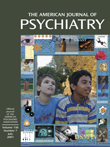Treatment of Child Abuse: Common Ground for Mental Health, Medical, and Legal Practitioners
Living in the broadcast area of New York City’s television stations, one is reminded almost daily of the prevalence of child abuse. Here in New Jersey, too, one encounters children and adolescents who are being supervised by the Division of Youth and Family Services because they have been neglected and/or abused. Dr. Reece and his 36 co-authors provide the practicing child psychiatrist an extremely useful reference work that covers the major categories of violence inflicted on children. They also devote a section to Munchausen syndrome by proxy and another to the wider implications of the victimization of children.
Each of the first six parts of the book considers treatment issues, both initial and long-term. Although most of the authors are pediatricians or psychologists, their formulations offer much food for thought to the child psychiatrist. The contributions of the lawyers provide guidance for clinicians who have to prepare reports on children who have experienced abuse or who may have to testify in court proceedings.
The extensive references at the close of most of the chapters call our attention to several journals of which most psychiatrists make little use. These include Child Abuse and Neglect,Criminal Justice Behavior, the Journal of Interpersonal Violence, and Violence Victims.
Kiser et al. (1) found that more than 50% of many child psychiatric patient populations have experienced some type of abuse and that half of these develop clinical symptoms as a result. The common complaints of anxiety, poor impulse control, sleep disturbance, inappropriate behavior, and enuresis may indicate a history of abuse. We need to be constantly aware of the possibility of past and/or ongoing abuse as a factor in the development of the clinical presentation.
Dr. Reece and his co-authors have given us a carefully done, thought-provoking text on a subject we should consider carefully in evaluating, working with, and advocating for our child patients.
1. Kiser LJ, Heston J, Millsap PA, Pruitt DB: Physical and sexual abuse in childhood: relationship with posttraumatic stress disorder. J Am Acad Child Adolesc Psychiatry 1991; 30:776-783Medline, Google Scholar



